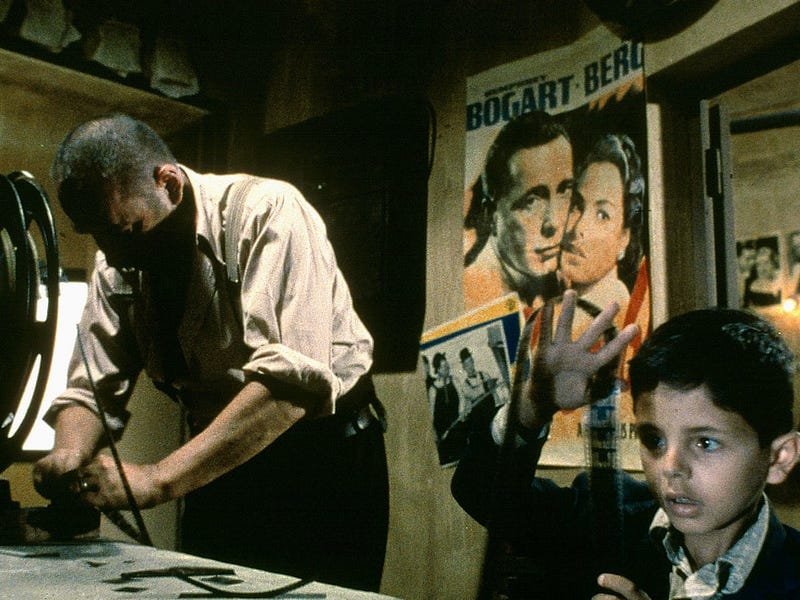
Since its premiere, the Italian film
Cinema Paradiso
(1988) and its director Giuseppe Tornatore have won numerous awards, including an Oscar nomination for Best Foreign Film, the Cannes Film Festival Special Jury Prize, and the Golden Globe Award for Best Foreign Language Film.
The film is a classic, beautifully told coming-of-age story. It follows young Salvatore, a poor Italian boy growing up in a small Sicilian village, and the unlikely friendship that he maintains with Alfredo, the local cinema’s projectionist. As a boy, Salvatore discovers a love of movies by watching Alfredo work with film and project movies to the public. The two soon form an unbreakable bond. Alfredo teaches Salvatore all he knows about cinema, and they help each other navigate through a life that is very different from the lives they see in the movies. The film’s timeline spans from Salvatore’s childhood all the way to his adulthood, where he works as an accomplished director.
The movie is considered one of Italy’s best, as it should be. As
The New York Times
’s Vincent Canby put it in his review of the film from 1990, the film very simply highlights the “magic of movies.” It does this not only by being a magical movie itself, but by filling the film with allusions and clips from other iconic films. During the movie, one can see John Wayne in a classic Western film, clips from Jean Renoir’s
Lower Depths
and many more.
The film features an impressive group of actors, including Philippe Noiret, Jacques Perrin and Marco Leonardi. The young boy who plays Salvatore as a child, Salvatore Cascio, is actually not an actor, but just a boy that director Giuseppe Tornatore found while filming in Sicily. Despite his lack of experience, Cascio does a lovely job in his role and brings an unmatched portrayal of childhood joy to the film. The other two actors who portray Salvatore, Marco Leonardi (teenage Salvatore) and Jacques Perrin (adult Salvatore) also do a magnificent job. The three actors together create one believable life, an homage to the casting.
Cinema Paradiso
is an old yet a classic film, reminding viewers of the magic of cinema and all it does for the world. As magical as it is, what makes the film even more appealing is that the story feels achievable and realistic. The movie is not awfully far-fetched, just hopeful. It portrays Italian culture and cinema in a beautiful way, and if need be, it is the perfect film to invoke a good cry.
Cinema Paradiso
is available to stream on HBO Max, Amazon Prime, or Hulu.
























